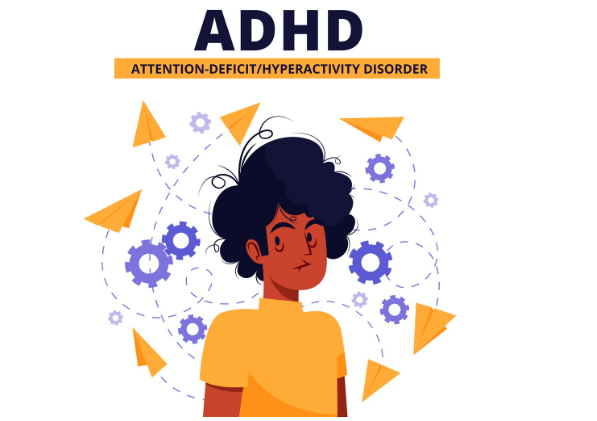ADHD in Adolescents: Myths vs. Facts and Real Support
ADHD In Adolescents: Myths Vs. Facts
At Transcending Psychiatry, we’ve worked with countless families navigating the confusing space between teenage emotions and a possible ADHD diagnosis. But when adolescents show signs of ADHD, they often face stigma, misinterpretation, or dismissal, and so do their parents.
This article is here to do two things:
1. Unpack the biggest myths about ADHD in adolescents
2. Bridge those insights into real-world support for both teens and adults living with ADHD
Many parents come to us seeking help for their child, only to realize they’ve been struggling too. That’s why you’ll also find this article filled with strategies for adults with ADHD, tools, and tips that support the entire family.
Let’s break down the myths. And let’s get honest about what ADHD is.
Myth #1: “It’s Just A Phase, They’ll Grow Out Of It”
Understanding ADHD In Teens And Adults
Teenagers often deal with mood swings, forgetfulness, and emotional reactivity, so it’s easy to chalk up ADHD-like behaviors as normal teen stuff. But ADHD in adolescents is real, and when left untreated, it often follows them into adulthood.
Many of the adults we support today were missed in adolescence. They come to us now asking how to manage adult ADHD and wish they’d had answers years ago.
That’s why recognizing ADHD in the teen years is so important. Early support builds confidence, reduces shame, and teaches coping skills that stay with them for life.
Myth #2: “They Just Need To Try Harder”
ADHD Strategies For Adults And Teens Start With Compassion
We hear this one a lot. But let’s be clear: ADHD is not a motivation issue; it’s a regulation issue. The ADHD brain doesn’t lack willpower. It struggles with activating, prioritizing, and sustaining attention, especially on non-preferred tasks.
What helps? Structure. Repetition. Tools. Coaching. Validation.
Whether it’s your teen forgetting homework or you forgetting where you put your phone, strategies for ADHD adults and teens need to focus on support, not shame.
Here’s what we recommend:
Visual schedules
External reminders
Body-based movement breaks
Time management for ADHD adults and teens using alarms or time-blocking
Emotional support for when focus breaks down
Myth #3: “ADHD Just Means Being Hyperactive”
Adult ADHD Coping Skills Go Far Beyond Restlessness
Hyperactivity is just one part of ADHD, and often not even the most obvious in teens or adults. Many adolescents experience inattentive ADHD, which shows up as:
Daydreaming
Forgetting directions
“Spacing out” in class
Getting distracted mid-task
Adults often recognize these same patterns in themselves. They come to us asking how to manage adult ADD or help with adult ADHD in ways that don’t just focus on energy, but executive functioning, emotional control, and memory.
Read More: Break the Myths: Depression Is Real, Treatable & Human
Whether you're 16 or 46, ADHD might look quiet, but the struggle is still very real.
Myth #4: “They’re Being Overly Dramatic”
How To Calm Down ADHD In Adults And Teens
ADHD can amplify emotions. Teens might cry easily, shut down during conflict, or go from 0 to 100 in seconds. This isn’t “drama.” It’s emotional dysregulation, a core part of ADHD for many.
We teach ADHD techniques for adults and teens to recognize when emotions are hijacking their nervous system. Some tools that work:
Naming what they’re feeling (without shame)
Breathing techniques
Somatic grounding tools
Movement to release tension
Talking through thoughts with a trusted support
Adult ADHD strategies also include therapy modalities like CBT and DBT, which give language and structure to those emotional waves.
Myth #5: “They Don’t Need Therapy, Just Medication”
Best Treatment For ADHD Adults And Teens Is Often A Mix
Medication can absolutely help many people, teens and adults alike. But it’s not the only option. At Transcending Psychiatry, we believe in integrative treatment plans that adapt to your lifestyle and needs.
Here’s what might be part of a personalized plan:
An adult ADHD treatment plan that includes weekly therapy
Coaching for executive functioning and planning
ADHD tips for adults and adolescents to reduce burnout
Parent or partner support to navigate daily challenges
How to treat ADHD without medication in adults or teens, if that’s your goal
It’s not about “fixing” someone. It’s about giving them the right tools at the right time.
Myth #6: “They’re Just Disorganized”
Adult ADHD Tools Help Build Lifelong Skills
Teens forget things. Adults forget things. But when forgetfulness and mental clutter interfere with daily life, we need to zoom out and ask what’s going on.
We often work with people who feel like their brains are always five tabs open, and none of them are fully loaded. That’s ADHD.
The adult ADHD tools and techniques we often use include:
Doing tasks in small steps
Externalizing memory using sticky notes or whiteboards
ADHD tools for adults, like habit trackers, visual checklists, or ADHD-specific apps
Sensory anchors like fidgets or noise-canceling headphones
Reframing negative self-talk around forgetfulness
Managing adult ADHD isn’t about becoming a productivity robot. It’s about finding a rhythm that works for your brain.
Myth #7: “They’ll Never Be Successful With ADHD”
Adult ADHD Guidelines Are Built Around Thriving, Not Surviving
Some of the most creative, successful, resilient people we know have ADHD. But here’s the key: they stopped trying to be neurotypical. They learned how their brain worked and started building systems around that truth.
Whether you’re parenting a teenager or navigating adulthood with ADHD yourself, it’s time to replace shame with strategy.
What helps with ADHD in adults and adolescents is:
Personalized support
Peer connection
Realistic routines
Reducing ADHD triggers in adults and teens
Clear boundaries
Permission to rest, not just push harder
We build adult ADHD treatment guidelines and teen treatment plans that reflect this philosophy.
Read More: 10 Signs You Need a Psychiatric Evaluation
Final Thoughts: How To Work With ADHD Adults And Teens
The more we learn, the more we realize ADHD is a spectrum, and that support must be as unique as the individual.
If you're a parent, partner, educator, or employer, learning how to work with ADHD adults or teens starts with empathy. It's not about making them “fit in”; it's about helping them shine, even when the world isn’t built for neurodivergence.
You don’t need to figure all of this out alone.
At Transcending Psychiatry, we walk with individuals and families, offering therapy, tools, and the kind of support that’s built on a real understanding of adult ADHD and adolescent needs.
We offer in-person services in New Jersey, along with Telehealth services in both New Jersey and New York.
Frequently Asked Questions
Q: Can untreated ADHD in teens lead to problems in adulthood?
Yes. Many adults we treat were never diagnosed as teens. Without support, ADHD can lead to burnout, anxiety, depression, and relational conflict. Early tools make a huge difference later on.
Q: What are the most important ADHD tips for adults who are newly diagnosed?
Start small. Use external systems. Get help. Try coaching or therapy. Explore how to manage ADHD in adults by learning how your brain functions, not trying to copy others.
Q: Is there a difference between managing adult ADHD and teen ADHD?
Yes and no. The symptoms are similar, but adults face different responsibilities. That’s why adult ADHD strategies often focus on work, parenting, and long-term balance.




